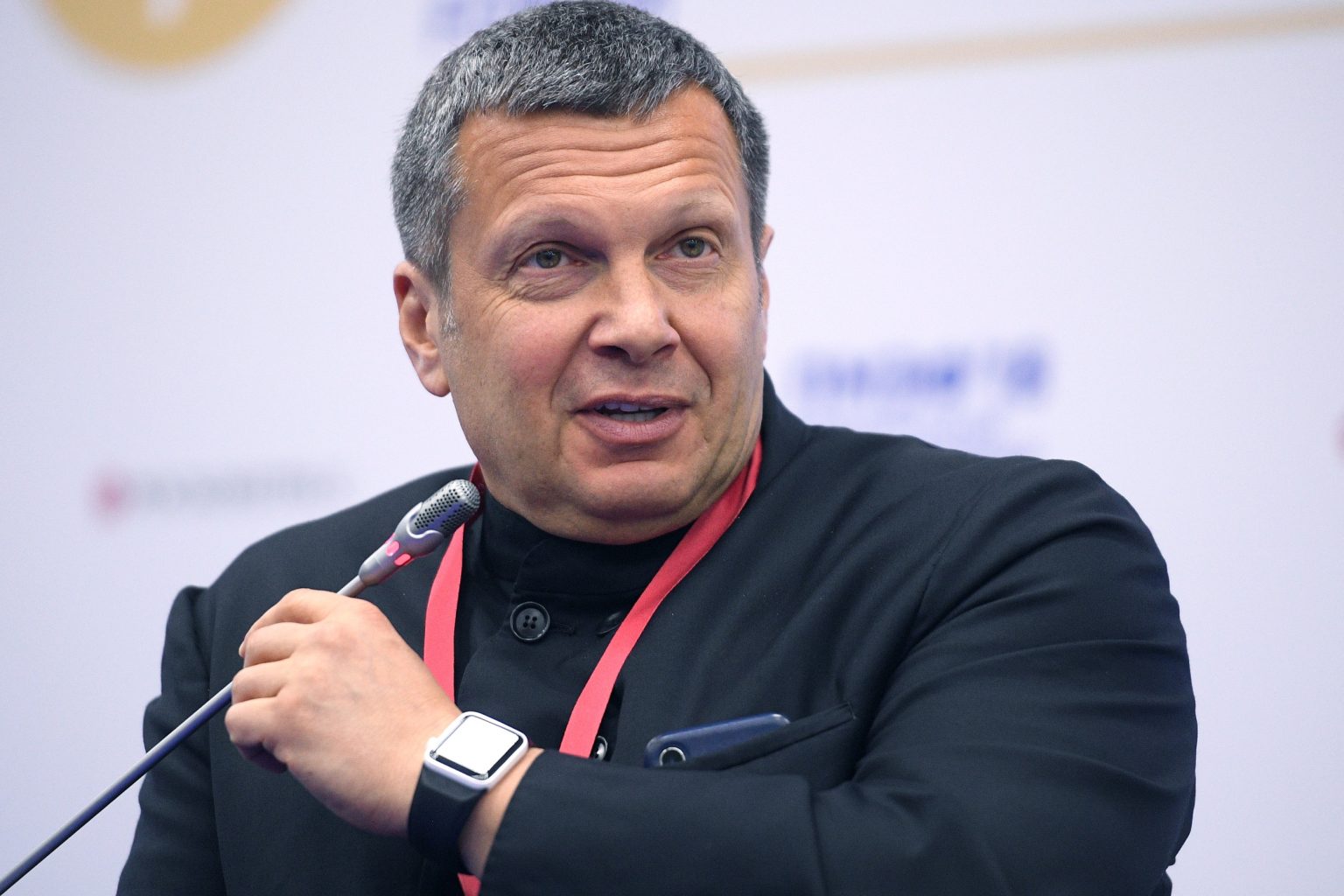Vladimir Solovyov, a prominent Russian state TV host and staunch supporter of Vladimir Putin, ignited controversy with remarks suggesting Russia’s capacity to strike Berlin with “special means.” During a broadcast of his show “Evening with Vladimir Solovyov,” he alluded to weaponry beyond conventional Kalibr missiles, claiming Russia possesses the capability to target Berlin but chooses not to employ such measures within its own territory. While the specific nature of these “special means” remains unclear, Solovyov’s comments have raised concerns, especially given his history of inflammatory rhetoric against Germany. Anton Gerashchenko, former Ukrainian deputy minister of internal affairs, shared a clip of the broadcast on X (formerly Twitter), highlighting Solovyov’s statements and warning Germany about the potential threat. This episode marks another instance of escalating tensions between Russia and Germany amidst the ongoing conflict in Ukraine.
Solovyov’s remarks, delivered in the context of a discussion about potential peacekeeping forces in the conflict zone, hinted at the possibility of deploying these “special weapons” should peacekeepers be deployed. He asserted that if peacekeepers were to intervene, the “collective West” would witness the deployment of these unconventional weapons in their full capacity. This veiled threat comes at a time when international efforts to find a peaceful resolution to the Ukraine conflict are intensifying, and Solovyov’s statements serve to further complicate an already delicate situation. His previous pronouncements against Germany, including suggestions of capturing Berlin and placing it under Russian control, underscore the deeply antagonistic sentiment he harbors towards the country.
This is not the first time Solovyov has issued such provocative statements about targeting Berlin. Earlier this year, he made similar remarks, claiming Russia could “destroy Berlin from Kaliningrad,” a Russian enclave strategically located close to Germany. This recurring theme of threatening Berlin reflects Solovyov’s broader anti-German stance, often expressed in his broadcasts. His rhetoric frequently criticizes Germany’s significant support for Ukraine, portraying it as a hostile act justifying retaliatory measures. Solovyov’s repeated pronouncements demonstrate a consistent pattern of using inflammatory language to escalate tensions and stoke anti-Western sentiment among the Russian populace.
The timing of Solovyov’s latest comments coincides with increased diplomatic activity between Germany and Ukraine. Friedrich Merz, a prominent German politician, recently visited Kyiv and engaged in discussions with President Volodymyr Zelensky about establishing a contact group focused on achieving a “common vision” for peace in Ukraine. Merz reaffirmed Germany’s commitment to supporting Ukraine’s self-defense and its pursuit of freedom and peace. German Chancellor Olaf Scholz also visited Kyiv and reiterated Germany’s unwavering long-term support for Ukraine. These high-level visits and declarations of support underscore Germany’s steadfast commitment to Ukraine despite the implicit threats from figures like Solovyov.
Germany has played a crucial role in assisting Ukraine since the onset of the conflict in February 2022. Berlin has provided substantial financial aid, amounting to billions of euros, for security capacity building and other forms of support. This includes military training for thousands of Ukrainian soldiers within Germany. Germany’s robust support for Ukraine stands in stark contrast to Russia’s narrative and further fuels the animosity between the two countries. Solovyov’s rhetoric can be interpreted as a response to this ongoing German support for Ukraine, highlighting the widening rift between Russia and the West.
Solovyov’s comments should be understood within the broader context of Russian state-controlled media, which often serves as a platform for disseminating propaganda and shaping public opinion. His pronouncements, while potentially alarming, may not necessarily reflect official Kremlin policy. Nevertheless, they contribute to a climate of hostility and serve as a reminder of the underlying tensions and potential for escalation in the ongoing conflict. The ambiguity surrounding the “special means” he mentioned further contributes to the unsettling nature of his remarks, leaving open the possibility of unconventional weaponry being deployed should the situation escalate. While it’s crucial to acknowledge the propagandistic nature of such statements, it’s equally important to remain vigilant about the potential for escalation and the unpredictable nature of the conflict.

